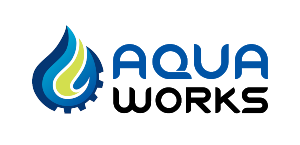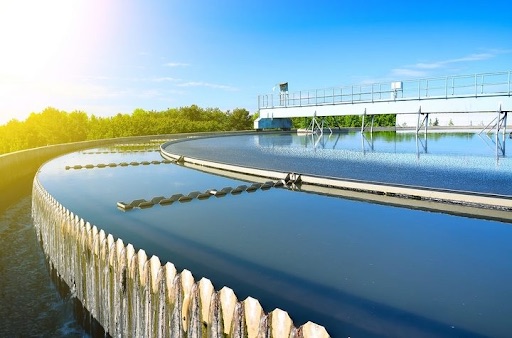The Water Services Act 2021 has been in effect since 11.15.2021. Even though the new law is often mentioned in the same breath as the 3 Waters Reform Programme, they are two different issues. The WSA 2021 may have legal implications if you are a small water supplier. However, the government’s reform program is currently very controversial. Thus, it is still far from its implementation.
The Campylobacter outbreak as turning point
In 2016, the Campylobacteriosis outbreak in the Hawkes Bay region was the decisive factor for New Zealand’s current water management reform. Five years ago, over 5,500 residents of Havelock North became sick with the waterborne disease caused by the Campylobacter bacteria. 45% of the people ended up in hospital, and five people died as a result of the disease. Following this devastating incident in the Hawkes Bay region, a public inquiry was launched to determine the causes of the Campylobacter outbreak and identify those responsible. In addition, measures were sought to prevent similar incidents in the future.
The public inquiry into the Havelock North outbreak revealed failures that severely compromised drinking water safety. The inadequate performance of the local water suppliers, the environmental regulator, and the drinking water regulator has led to this unfortunate event. A new legal framework for drinking water should be established to improve drinking water security for the whole of Aotearoa sustainably.
What is part of New Zealand’s water reform of the drinking water regulation system? What is the 3 Waters Reform Programme?
Taumata Arowai – the new water services regulator for Aotearoa
As of November 15, 2021, Taumata Arowai is the new regulator for water services in New Zealand. The Ministry of Health handed over its responsibilities and duties to the new provision from this date. At the same time, the new Water Services Act (2021) came into force, empowering Taumata Arowai to create a new regulatory system for safe drinking water for all Aotearoa. The new authority’s primary purpose is to oversee, administer, and enforce the new Water Services Act 2021.
Taumata Arowai will strive to improve public health. By implementing system-wide reforms in drinking water and source water, stormwater, and wastewater – the three waters – the regulator will ensure access to safe drinking water throughout New Zealand.

The Water Services Act 2021
When the Water Services Act (2021) received Royal Assent on October 4, 2021, it marked a milestone in drinking water security for New Zealand. Aqua Works has worked in residential and commercial water treatment to provide clean and safe drinking water for the past 20 years. From our perspective, this new law is the biggest game-changer in our industry. It is, in our view, a sensible, pragmatic change that was necessary to ensure that the people of Aotearoa have 100% pure drinking water. In addition, it is unacceptable that a first-class country like New Zealand does not currently meet international drinking water standards in terms of drinking water safety.
This new Act intends to improve the regulation of New Zealand’s drinking water, wastewater, and stormwater networks and their performance. The Water Services Act 2021 has stand-alone status, making it an independent law regulating New Zealand’s drinking water.
Compliance with the Drinking Water Standards 2005 (revised 208)
For the first time, a New Zealand law defines terms such as “drinking water” and the meaning of “safe” concerning drinking water. Furthermore, it also explains the difference between drinking water supplier, drinking water supply, and the meaning of an operator and owner. Most and foremost, the new law clarifies the obligation of supplying safe drinking water in New Zealand. Thus, the new Water Services Act 2021 addresses all owners, private and public water suppliers. It establishes the legal framework for the provision of potable water and compliance with the NZ Drinking Water Standards 2005.
The provision of safe drinking water is the primary responsibility. Registration with the new drinking water regulatory authority, Taumata Arowai, is part of the main duties. Additionally, preparing a water safety plan and the proactive prevention of waterborne diseases harmful to health is essential. Finally, the law defines possibilities for water treatment through an end-point treatment device.
The Three Waters Reform Program
The outbreak of waterborne Campylobacter infection in Havelock in 2016 was a key factor, as thousands of town residents had contracted the bacteria through contaminated drinking water. Consequently, in 2020, the New Zealand government launched a three-year programme to improve drinking water safety in Aotearoa. The three water programs and the Water Services Act 2021 are independent of each other. However, the program is a Labour-led programme as a response to the Water Services Act 2021.
A political design has led to the initiation of the Three Waters Reform Program. However, it represents a significant step away from the existing management of drinking water. Ultimately, the program aims to remove control from local governments to a centralized nationwide over structure. Thus, the administration reduces from the current 66 authorities to 4. The new proposals’ heart is a new governance structure and ownership between local councils and local iwi.

A controversial discussion in the public – The 3 Waters Reform Programme
So far, the Three Waters Reform Program has caused quite a bit of division across the country. The vast majority of local councils in New Zealand oppose the programme. However, the current government seems steadfast in its stance to implement the new water reform programme. Therefore, we believe the government may mandate the reforms and thus overrule the local councils and taxpayers. We recommend that you watch this closely.
From our perspective, this proposal seems rushed, as local electorates have not been fully consulted to date. Moreover, it appears to have created division rather than being a cohesive progressive step forward. It seems to muddle up with He Puapua, which many perceive as secretive and destructive. Again, it seems there has been little consultation at the local level. Most local communities we spoke with seem to be opposed to the new reforms. Perhaps better communication would lead to a better understanding between the government and local communities. Consequently, local ratepayers would also have an opportunity to be heard and have a say.
Maybe there is a win-win here after all, without the solution being mandated by one side?
For our team at Aqua Works, it is essential to show you that the 3 Waters Reform Programme and the new Water Services Act 2021 are related in content. However, they are two completely different issues. As a small water supplies you have to comply with the Water Services Act 2021 and therefore with the Drinking Water Standards NZ to provide safe potable water for your business.
Aqua Works is the water expert in the Rodney district
Aqua Works is your competent water specialist to navigate you and your business successfully through this time of change. Therefore, our expert team can help you to comply with the new legal requirements of the Water Services Act 2021. With our product technologies and solutions, we ensure that you will deliver potable water for your business. Whether you are a self-supplying school or kindy, a rural cafe, restaurant or bakery, Aqua Works supports rural businesses to meet their legal requirements.
We are actively implementing the understanding and purpose of Te Mana O Te Wai in our business culture as it matches many of our values. We respect and recognise the whakapapa of water and the te tapu of the water when we provide advice to our tangata whenua, our local communities and our customers. The team at Aqua Works is passionate to work with you to find the best solution for your healthy water.
Call us on 0800 Aqua Works to arrange an on-site appointment. Together we will find the best suitable solution for your water supply.


